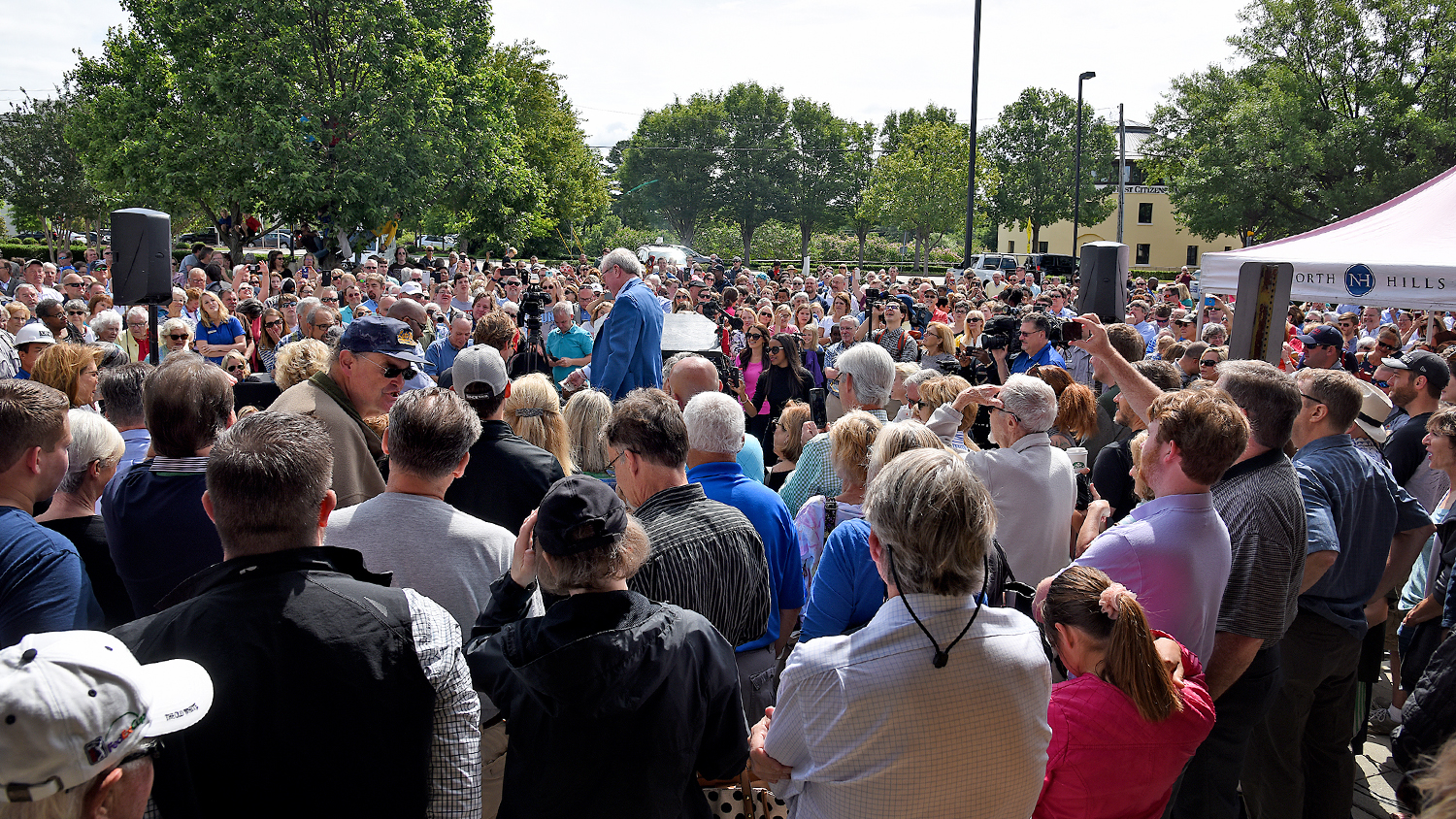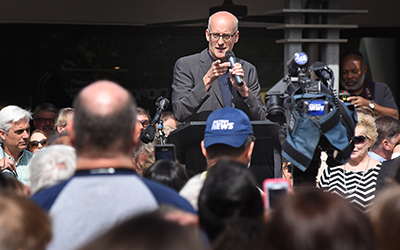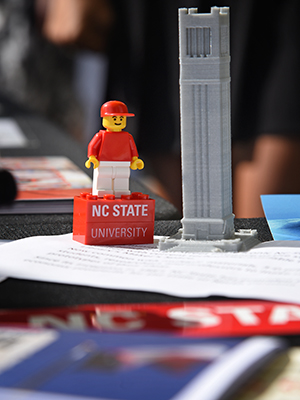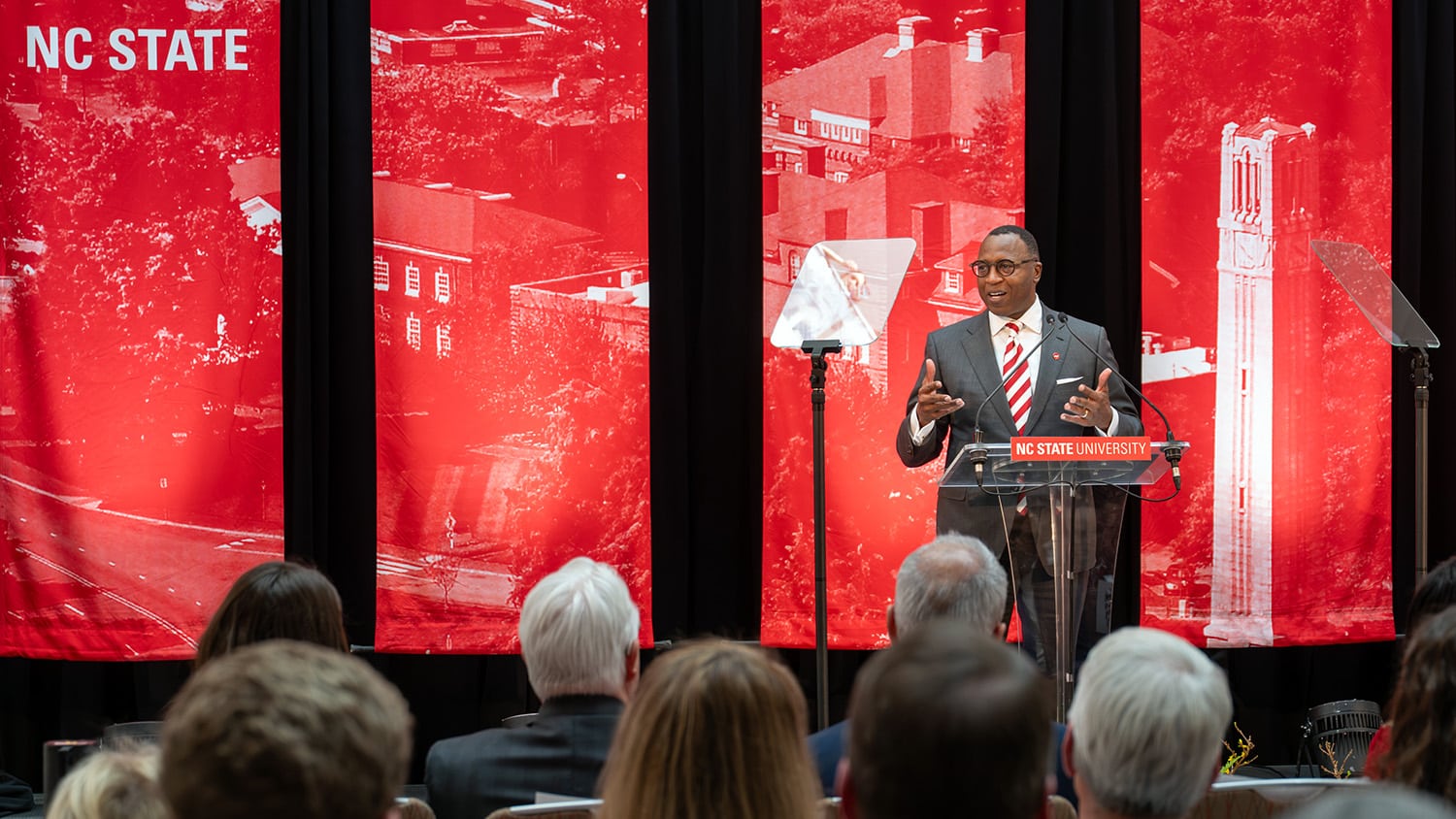Time Capsule Awash in Memories

Not to throw water on high expectations, but the 50-year-old time capsule opened Thursday morning at the site of Raleigh’s now defunct Cardinal Theatre sent the hundreds of spectators who eagerly awaited the unveiling home with slightly dampened spirits.
The metal can that held the carefully selected contents wasn’t exactly water-tight and most of the paper items—including everything in the sealed envelope full of NC State offerings—was a bit waterlogged.
Many of the items were identifiable, but not necessarily salvageable. The reel-to-reel audio tapes from local radio stations, a 16mm film reel from a local television affiliate, a book of the North Carolina state constitution, even a bulletin from First Presbyterian Church of Raleigh, weren’t totally ruined, but were pretty soggy.
All the items were taken to the downtown City of Raleigh Museum to be preserved, if possible, and analyzed.

Officials with Kane Realtors, the commercial group that owns North Hills and organized the opening, weren’t sure what to expect when the medal canister was cut open. Nor were the hundreds of spectators—which included Raleigh native and Hollywood film director Peyton Reed (“Ant-Man,” “The Break-Up,” “Bring It On”) to the elementary school kids who were let out of class just for the occasion—who filled the parking lot in front of a half-dozen retail spaces.
Reed’s dreams of becoming a famous director began when he first saw “The Computer Wore Tennis Shoes” starring Kurt Russell at the Cardinal as young kid.
The Cardinal Theatre opened in 1967 with state-of-the-art wide-screen projection and seating for 750. It debuted at the same time that the North Hills Mall was enclosed to become the first air-conditioned, two-story indoor shopping center between Washington, D.C. and Atlanta.
With both 35mm and 70mm projection, the Cardinal regularly showed the biggest releases out of Hollywood.
And it was a lively place. Shortly after it opened it hosted the Southern premiere of “The Flim-Flam Man,” a movie starring George C. Scott based on a novel by NC State English professor and novelist Guy Owen, who wrote nearly a dozen novels and collections of poetry. “The Flim-Flam Man” was Owen’s only credited screenplay.

For years, movie-goers and shoppers have walked over a plaque in the sidewalk touting the time capsule: “Commemorating the opening of Cardinal Theatre. Placed here June 8, 1967. To be opened June 8, 2017.”
Reed, for one, always had that date marked in a mental calendar. He flew in on a red-eye flight from California early Thursday morning just to be at the ceremony.
“This is where I fell in love with the movies,” he said.
While it wasn’t exactly as fruitless as Geraldo Rivera opening Al Capone’s vaults, there was some disappointment when most of what came out of the time capsule was ruined film and tape, soaked papers and muddy water. But it was fun to see what folks from 50 years ago thought was important to include.
At this time, we don’t even know what was in the sealed envelope of NC State papers.
Still, there’s hope for the future. A new, much more water-tight time capsule will be entered in the same hole in the sidewalk in front of what is now a Bonefish Grill restaurant. NC State has included several items in it, including a 3-D printed model of the Memorial Tower, a “Think and Do” Lego brick, a campus map and some facts and figures about the university in 2017.
A short note included reads:
This miniature model of the iconic NC State Memorial Tower, located at the Hillsborough Street entrance of the state’s largest university, was printed with current technology available to all students at the D.H. Hill Library’s Makerspace.
Now common with multiple materials, 3-D printing is vital in allowing students, researchers and professors to make rapid, low-cost prototypes of their ideas.
Since its inception in 1887, NC State has provided the building blocks of economic prosperity for the state of North Carolina.
And that’s a message that will never be all wet.
- Categories:


